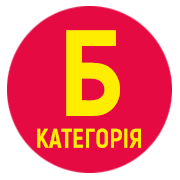THE INFLUENCE OF SPEED-STRENGTH TRAINING ON THE FUNCTIONAL FITNESS OF JUDO PLAYERS
DOI:
https://doi.org/10.32782/olimpspu/2023.1.7Keywords:
judo, long-term training, methodology, training period, judokas, sports achievementsAbstract
The sports technique of judo is a complex multi-structural system of purposeful and interconnected motor actions. It counts about 2000 receptions. Sports wrestling at the current stage of its development is characterized by high requirements for various aspects of athletes’ preparation. Special attention is paid to strength and speed-strength training. The ability to selectively show significant muscle effort allows wrestlers to successfully perform combinations, apply contr- techniques in a timely manner, which significantly increases the reliability of the implementation of technical actions. The purpose of this work is to analyze the influence of speed-strength training on the functional fitness of judo wrestlers. The inadequacy of the study of the biological component, the inconsistency of the opinions of experts on the most important practical issues that determine the effective solution to the development of the working capacity of judokas, allows us to consider this problem quite urgent. Issues related to long-term training are not sufficiently developed in most sports. The relative youth of Ukrainian judo increases existing difficulties. The main issues to be investigated here are the structure of multi-year training and the focus of classes at its individual stages. Knowledge of the age-related dynamics of sports achievements and the factors that determine them play an important role in their correct decision. In this paper it is proposed to consider sports performance as an opportunity for the body to increase and increase other adaptive mechanisms involved in the manifestation of the functional power of the demonstration of technical actions. This approach allows you to use the physiological features of the athlete’s body, and gradually include additional opportunities to increase the power of work performance.
References
Аналіз спортивних результатів з використанням інформаційних технологій / В.І. Богіно, В.О. Дрюков, Ю.О. Павленко та ін. Актуальні проблеми фізичної культури і спорту : збірник наукових праць. Київ, 2004. № 3. С. 5–9.
Навтіков О. Модель навчально-інформаційного засобу олімпійської освіти школярів / Олександр Навтіков, Андрій Мутьєв, Дмитро Сишко. Молода спортивна наука України : збірник наукових праць з галузі фізичної культури та спорту. Львів, 2010. Вип. 14, т. 1. С. 200–203.
Про Національну доктрину розвитку фізичної культури і спорту : Указ Президента України вiд 20.11.2005 на пiдставi 1505/2005. URL: http://zakon.rada.gov.
Про пріоритети розвитку фізичної культури і спорту в Україні : Указ Президента України від 21.07.2008 № 640/2008. URL: http://zakon2.rada.gov.ua.
Тіняков А.О. Аналіз можливостей юнацького спорту як соціальної системи у вихованні моральних якостей особистості. Теорія і практика управління соціальними системами. 2010. № 3. С. 66–73.
Томенко О.А. Аксіологічна складова фізкультурної освіти учнівської молоді. Вісник Запорізького національного університету : збірник наукових статей. Серія «Фізичне виховання та спорт». Запоріжжя, 2010. № 2 (4). С. 134–138.
Шкребтій Ю.М. Управління тренувальними і змагальними навантаженнями спортсменів високого класу : монографія. Київ : Олімпійська література, 2005. 234 с.
Щербашин Я. Структура та зміст олімпійської освіти як складова виховання дітей та молоді. Молода спортивна наука України : збірник наукових праць з галузі фізичної культури та спорту. Львів, 2007. Вип. 11, т. 5. С. 395−399.
Юхимук В. Ставлення вчителів фізичної культури до поширення знань олімпійської тематики серед учнів загальноосвітніх навчальних закладів м. Львова. Теорія та методика фізичного виховання. 2009. № 3. С. 7–9.







